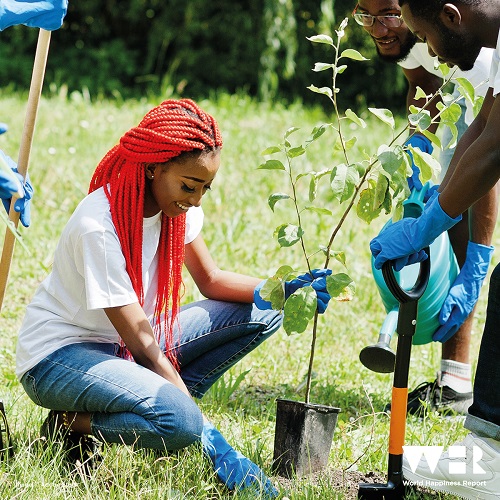
People are much kinder than we expect, World Happiness Report shows

Belief in the kindness of others is much more closely tied to happiness than previously thought, according to findings published in the World Happiness Report 2025.
Global evidence on the perceived and actual return of lost wallets shows that people are much too pessimistic about the kindness of their communities compared to reality. Actual rates of wallet return are around twice as high as people expect.
Believing that others are willing to return your lost wallet is also shown to be a strong predictor of population happiness: Nordic nations once again top the ranking of the world’s happiest countries, but they also rank among the top places for expected and actual return of lost wallets.
“Both benevolent acts and expected kindness play a crucial role in shaping individual happiness,” says Dr Shun Wang, Senior Associate Professor at International Business School Suzhou in Xi’an Jiaotong-Liverpool University, and one of the editors of the report.
The findings are published today to mark the UN’s International Day of Happiness. They are powered by Gallup World Poll data and other sources, including the Lloyd’s Register Foundation World Risk Poll, and analysed by leading experts in well-being science.

Further results published in this 13th edition of the World Happiness Report, focused on the theme of “caring and sharing”, include:
- Sharing meals with others is strongly linked with well-being across all global regions, but the number of people dining alone in the United States has increased 53% over the past two decades.
- Household size is closely linked to happiness. Four to five people living together enjoy the highest levels of happiness in Mexico and Europe, but many people in Europe are living on their own.
- In 2023, 19% of young adults across the world reported having no one they could count on for social support. This is a 39% increase compared to 2006.
- Deaths of despair are less frequent in countries where benevolent acts are more frequent.
- Declining happiness and social trust in the US and parts of Europe combine to explain the rise and direction of political polarisation and anti-system votes.
- The cost-effectiveness of charities varies dramatically. Some charities are hundreds of times better at increasing happiness per dollar than others.
World Happiness Report 2025 also contains a ranking of the world’s happiest countries. Finland leads the world in happiness for the eighth year in a row, with Finns reporting an average score of 7.736 (out of 10) when asked to evaluate their lives.
Costa Rica (6th) and Mexico (10th) both enter the top 10 for the first time, while continued upward trends for countries such as Lithuania (16th), Slovenia (19th) and Czechia (20th) underline the convergence of happiness levels between Eastern, Central and Western Europe.
The United States (24th) falls to its lowest-ever position, with the United Kingdom (23rd) reporting its lowest average life evaluation since the 2017 report.

Country rankings are based on a three-year average of each population’s average assessment of their quality of life. Interdisciplinary experts from economics, psychology, sociology and beyond then seek to explain the variations across countries and over time using factors such as GDP per capita, healthy life expectancy, having someone to count on, a sense of freedom, generosity and perceptions of corruption.
These factors help to explain the differences across nations, while the rankings themselves are based solely on the answers people give when asked to rate their own lives.
Dr Lara B Aknin, professor of social psychology at Simon Fraser University, Canada, and an editor of the World Happiness Report, says: “Human happiness is driven by our relationships with others. Investing in positive social connections and engaging in benevolent actions are both matched by greater happiness.”
The World Happiness Report is published by the Wellbeing Research Centre at the University of Oxford, in partnership with Gallup, the UN Sustainable Development Solutions Network and an independent editorial board.
The editorial board consists of Professor John F Helliwell, University of British Columbia, Canada; Professor Richard Layard, London School of Economics and Political Science, UK; Professor Jeffrey D Sachs, Columbia University, US; Professor Jan-Emmanuel De Neve, University of Oxford, UK; Dr Lara B Aknin, Simon Fraser University, Canada; and Dr Shun Wang, Xi’an Jiaotong-Liverpool University, China.
On Friday 21 March, Dr Wang will present the Asia launch of the report at a virtual event. To learn more about the Asia launch, and to read the report in full, go to worldhappiness.report
Text and images courtesy of the Oxford Wellbeing Research Centre
Additional reporting by Patricia Pieterse
Distribution channels: Education
Legal Disclaimer:
EIN Presswire provides this news content "as is" without warranty of any kind. We do not accept any responsibility or liability for the accuracy, content, images, videos, licenses, completeness, legality, or reliability of the information contained in this article. If you have any complaints or copyright issues related to this article, kindly contact the author above.
Submit your press release